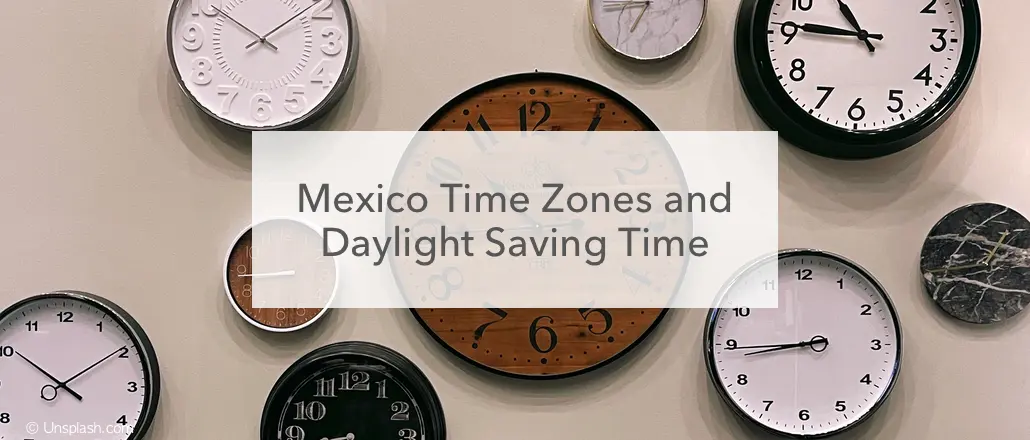
Time zones and summertime in Mexico
When you travel to or through Mexico you might need to reset your watch a few times. Mexico has 4 different time zones.
The time zones in Mexico are named: Central, Northwest, Pacific, and Southeast.
And that is divided over the 32 States as follows:
Northwest: Baja California
Pacific: Baja California Sur, Chihuahua, Nayarit, Sinaloa and Sonora
Central: Aguascalientes, Campeche, Coahuila, Colima, Chiapas, Mexico City, Durango, Guanajuato, Guerrero, Hidalgo, Jalisco, State of Mexico, Michoacán, Morelos, Nuevo León, Oaxaca, Puebla, Querétaro, San Luis Potosí, Tabasco, Tamaulipas, Tlaxcala, Veracruz, Yucatán and Zacatecas
Southeast: Quintana Roo
As you can see, most States in Mexico are in the Central time zone.

But what is the time in which timezone?
In Northwest, it is 2 hours later than Central. For example, if it is 12 midday in Mexico City, it is 10 in the morning in Tijuana.
Pacific time is one hour later than Central, So when it is 12 midday in Mexico City it will be 11 in the morning in Culiacán. Quintana Roo, which is in the Southeast timezone, this is equal to the United States Eastern Standard time.

Summertime or Daylight Saving Time in Mexico
Mexico embraced Daylight Saving time in 1996. Daylight saving time was established by the decree of President Ernesto Zedillo Ponce de León, under the argument of reducing energy expenditure in the country’s households, and being in commercial synchrony with the United States.
But this synchrony ends in 2022. October 30 the clocks will go back one more time to never change again.
On September 29, 2022, the Chamber of Deputies agreed to end the yearly adjustment of time with the exception of a few border cities and villages that will adjust to USA time, due to border employment and cross-border activities. The Senat still has to approve but that is said to be a formality.
So throughout the country Summertime will end on October 30 of 2022.

Why does the government eliminate daylight saving time?
According to a UNAM study, the supposed energy savings that the time change brings is practically non-existent, and it said it has a direct impact on people’s health, mainly due to sleep disturbances. It is well known within political circles and beyond, that President Andrés Manuel López Obrador always was an advocate of canceling Daylight Saving Time.

